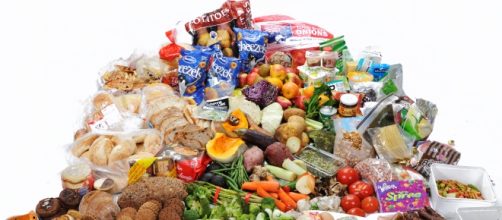With a third of the food produced in the UK going uneaten, it's not surprising that food waste and how to reduce it has become a major concern for a lot of people.
A particularly shocking aspect of the problem is that a good percentage of the food discarded by supermarkets is still fit for human consumption, and could be redistributed to those who rely on charities and food banks for a decent meal.
New legislation will help cut waste
So what’s being done to address this unacceptable situation? The French government has recently put legislation in place to stop supermarkets discarding or destroying unsold food, which from now on must be donated to charities and food banks.
Hopefully, the UK will soon follow suit; if the food waste (reduction) bill is passed in the House of Commons (it is currently awaiting a second reading), similar legislation will be introduced here.
Pressure on individuals
Along with efforts to reduce supermarket waste, there is also pressure being put on us as individuals to cut down on the amount of good food that ends up in our bins. Since 2007, WRAP (Waste Resources Action Programme) has been running its ‘Love Food Hate Waste’ programme to try and raise people’s awareness of the need to reduce food waste. Over the last two years it has taken its message onto UK city streets, offering advice and practical help.
Celebrity chefs Jamie Oliver and Hugh Fearnley-Whittingstall are also encouraging us to think more carefully about what we buy and have lots of advice on how we can make good use of leftovers rather than throwing them away.
And in the recent TV series ‘Eat Well for Less’, Greg Wallace and his co-presenters took families to task about how much they spent on their weekly shop and re-educated them in how to plan their meals better.
Supermarket waste highlighted
A TV series that really highlighted the problem of supermarket waste was ‘Hugh’s War on Waste’. In one of the episodes, Hugh Fearnley-Whittingstall accompanied a couple on a late-night tour of supermarket bins to collect in-date food that had been dumped in them. They have been doing this (strictly speakingillegally) for seven years, over which time they have served up 25,000 meals from a kitchen in Bristol using the produce retrieved.
Although the supermarkets in question claimed to be donating unsold products to charities, it was evident from the programme that unacceptable amounts of perfectly good food are still slipping through the net and not just into wheelie bins.
Some of this waste is also making its way to anaerobic digesters for conversion to gases that are burned to make electricity. The food waste (reduction) bill aims to stop this happening.
Over supply
It doesn't take a genius to work out that such huge amounts of surplus food come from over supply. The big supermarkets are under constant pressure to satisfy our needs or risk losing us to their competitors. So they keep the shelves stacked high with lots of different choices, making sure to replace stock that's running close to its sell-by date. After all, who's going to buy an item that's about to expire when the exact same thing next to it is good for much longer? Given this situation, significant levels of waste are inevitable.
More effort needed
A derisory 2% of surplus food is currently being redistributed to charities. While we wait, in hope, for the food waste (reduction) bill to be passed, a more concerted effort must be made to ensure that food that has been taken off supermarket shelves, and is still in date, gets to those who need it.

